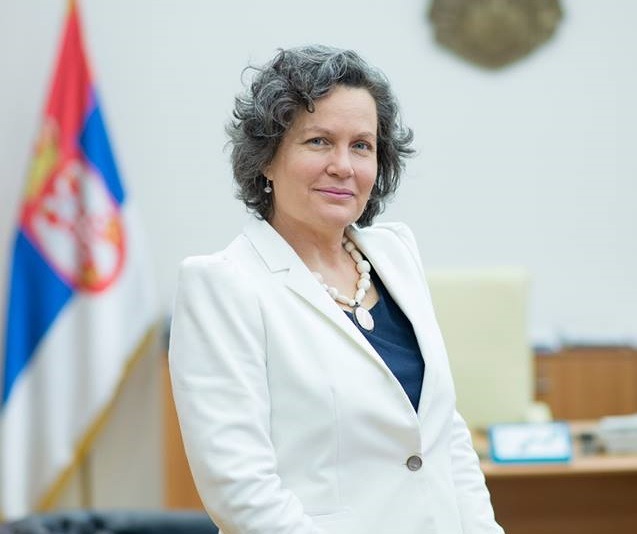Enlargement used to be one of EU’s key priorities. Not so any longer. EU suffers of enlargement fatigue, with about 40 % of the total population against further enlargement. Currently EU is occupied with more pressing issues such as its own identity, the economic crisis, the Greek crisis and, above all, the immigration crisis.
The new Commission which started to work in 2014 decided that no new member state would be accepted during its five-year long mandate period. However, the commitments to the countries in Western Balkans and to Turkey are still valid. Preparations for joining EU one day in the future when all conditions have been met are on-going and amply supported by EU financial assistance.
EU member states are taking a growing interest in enlargement and may encourage a candidate country or use their veto to block it from making progress on its way into EU. The path to become EU member has been likened to a race full of hurdles where at each point the European Commission is checking whether the candidate country has met the conditions and is ready for next phase in the process.
In principle negotiations will only start when the candidate country has proven that it fulfils the political criteria on democracy, the rule of law, human rights and the protection of minorities. In practice this is not always the case. Once negotiations start, they’ll focus on the adoption and enforcement of EU’s comprehensive legal framework, the so-called acquis, which has been divided into 35 chapters covering all possible policy areas.
In Serbia’s case the process started 10 years ago with the negotiations on the Stabilisation and Association Agreement. Now Serbia appears to be on the right track. The Brussels Times met Ms Kori Udovički, Deputy Prime Minister of Serbia, when she visited Brussels.
She is also minister of public administration reform and local self-government – one of the main pillars in EUs enlargement strategy for Western Balkans. With her background as economist in IMF, assistant secretary-general of the United Nations and governor of the national bank of Serbia, she appears to be the ideal champion for public administration reform in her country.
Q: Serbia was granted candidate status already in March 2012. Formal negotiations started in December 2013 with the adoption of a negotiation framework. But no chapters have been opened yet for negotiations because of the Kosovo issue. Is that correct?
A: Indeed. We are quite ready to start: Chapter 32 on financial management and control is already completely ready for opening. Chapter 35 on normalization of relations between Belgrade and Pristina and chapters 23 and 24 - the rule of law chapters - should be among the first to be opened and should have equal weight in the membership negotiations.
Chapter 32 is more important than it appears at first glance. It contains the requirements for public internal financial control and external state audit – two essential functions for a proper functioning public sector. Candidate countries are expected to establish an independent state audit institution capable of all types of public auditing, including performance auditing.
Chapters 23 and 24 cover judicial reforms, anti-corruption measures, fundamental rights and the fight against organized crime. According to the Commission’s new approach, these chapters are opened early on in the accession process. Kori Udovički thinks that the drafting of the final versions are coming to an end and will show that Serbia has met the benchmarks for the opening of the chapters.
Chapter 35 on “other issues” is usually dealt with at the end of the process but not in Serbia’s case. It includes completely new issues for consideration in the negotiations for both Serbia and the EU.
“We cannot say that the approach to negotiating on chapter 35 has been completely defined. Still, there is no doubt that the normalization of relations between Belgrade and Pristina is a key factor of stability in the region, and hence, for future progress towards EU accession. As we have demonstrated on many occasions, regional stability is a high priority for us.”
Kori Udovički is optimistic about the start ofnegotiations. “We hope that the September Council of Ministers will recommend the opening of chapters so that we can start negotiate before the end of this year. Serbia has been making great efforts to find solutions on all the open questions in the Belgrade-Pristina dialogue. Therefore I’m confident that the opening of chapters will happen sooner rather than later.”
Q: Candidate countries seem to make progress on chapters even if they haven't been opened yet. Does it prove that they are carrying out reforms in their own interest and not only to join the EU?
A: Absolutely. We would do it all even if it wasn’t part of the accession process. The “Europeanization” of Serbia is important to us. We want to follow the European model. We are Europeans and feel European. We need the stable, democratic, institutional structure that EU represents. Our government wants a modern, professional, rational state where citizens live and work with pride, and the young don’t leave us in search of a better life elsewhere.
But it’s not enough, Kori Udovički continues: “It is important to make sure that politicians and their constituencies remain motivated over the longer haul. Visible progress in EU integration helps us to attract foreign investment—a critical condition for our economic and political sustainability. Most importantly, it helps us to disprove the still non-negligible counter-forces that claim that EU integration is a façade, that there is no benefit in joining the EU, and that we should turn in other directions to attain economic prosperity.”
Kori Udovički, Deputy Prime Minister of Serbia
Q: Public administration reform (PAR) is an important part of the process in preparing for EU membership. However, there is no separate chapter on PAR although elements of it are covered by other chapters. Does the Commission have any leverage without a chapter on PAR?
A: As you know, public administration is an internal matter for each member country. There isn’t anything like “one size fits all” – each system differs. This is particularly true for the former Yugoslav states that share a peculiar legacy of Yugoslavia’s self-management and what was considered to be the “deconstruction” of the state.
“However, high standards of operation and professionalism are not only a part of the European values system, but necessary in order to fully implement the rule of law and the principle of non-discrimination by public bodies. Moreover, the whole process of EU integration, and later membership, requires a very high administrative capacity. Hence, accomplishment of the goals in every chapter requires the building or rebuilding of the capacity of some institution or another.”
For Kori Udovički this means that every chapter is also a chapter on public administration reform. “We have a PAR Action Plan that was very positively assessed by the European Commission and that pulls together some key horizontal reforms that need to be carried out. It is not going to be easy, as we have to accomplish restructuring and change of the public sector amid very sharp fiscal consolidation.
Q: Would you say that Serbia has been making progress in PAR in recent years?
Kori Udovički admits that progress is slow. “Unfortunately, work on PAR really took off only with the formation of the present government just over a year ago. Before that there was some progress in regulatory reform, especially in the establishment of independent bodies and agencies, but not in improving the capacity of the administration to deliver services and develop policy analysis and change.”
“We have a special working group for PAR in which we discuss issues with the Commission in a manner that resembles discussions of the chapters. Key was the adoption of the Action Plan. The plan will enable us to better monitor the results of PAR. The forthcoming sector budget support to PAR will also help. So, the leverage of the Commission is quite high as it is.”
Earlier this year the Commission published progress reports on the neighbourhood countries. They included a separate statistical annex where the countries were benchmarked. The Commission is going to change the format and content of the next progress reports, due this October, on the candidate countries. The purpose is among others to increase comparability between candidate countries by applying new principles and indicators which have been developed by OECD.
Q: Does the new format of the progress report mean that also the candidate countries will be benchmarked and ranked according to PAR indicators. How do you think that this will work? Will it result in "peer pressure" on the candidate countries?
A: An evidence-based and common approach for all countries, including a benchmarking system, is a very good idea if it can be implemented in the right way. It will show everyone where each country stands. It provides an incentive by simple showing you that you can “beat the competition” when you work hard. The desire to excel in the region is always a great motivation.
But there is the important “if”, Kori Udovički adds. “The condition is that progress will be measured adequately and fairly. And this is not simple in the case of PAR because it has many dimensions, some of which conflict with one-another. They are also all hard to capture by quantitative measures. Clear reasoning and good detailed information may actually give very good results. That said, I believe that the benchmarking approach will increase the already good regional cooperation in the Western Balkans on sharing PAR experience and exchanging good practice.”
Q: PAR in the past has been focusing on institution building in central government while local self-government was to some extent overlooked. What are your plans for reforming local government? Do you have any benchmarks for fiscal decentralization?
Kori Udovički agrees that the issue of fiscal decentralization has not been given sufficient attention in the past. “As in the rest of former Yugoslavia, Serbia used to have a very high level of administrative decentralization, but it became very centralized in the 90s. Financial accountability wasn’t always clearly defined, nor the division of competencies between central and local authorities.”
An example is health care. “Primary health facilities are nominally under local jurisdiction, but salaries are paid from the health insurance fund that does not really operate as a fund, but more as a branch of the central government. As it is, accountabilities aren’t clear, and this breeds less responsible behaviour and complex decision-making processes, even impasses.”
“Now, figuring out how to disentangle this, and decide which functions need to be put more fully under local respectively central control, is a complex issue. Changes in both directions will happen, but we need to create ownership around any change of this nature, as it will have to be accompanied by greater accountability on all levels. Hence, for the time being, we are taking one issue at a time and expect to work on a more comprehensive decentralization strategy next year, as this year we have our hands full.”
Q: This brings us to the general problem of recruitment to the public administration and its overall performance. A new civil service law was recently adopted. How is it being implemented?
Kori Udovički explains that the civil service was supposed to change already a decade ago when a new system was adopted. On the face of it, it looked good. Recruitment of staff became competitive. Career development was linked to performance appraisal. However, implementation suffered because of politicization. The preconditions for managing the system were also lacking.
“For merit-based recruitment to function, job descriptions and competence requirements need to be well defined. There have also to be dedicated human resources in place to operate the system. The performance appraisal system doesn’t work if almost everyone gets the highest score and is entitled to fast promotion. We need a simpler system to ensure a more professional and merit-based approach to recruitment, training and promotion.
Q: A common problem in Western Balkans has been the politicization of recruitment and the replacement of civil servants after elections. Was it still a problem after the latest elections in Serbia?
Kori Udovički thinks that there is more than just politicization at play. Cultural factors play also a role. While there is a culture of professionalism among civil servants, there is also a culture of legalism. The lack of policy-making capacity makes it almost impossible to get anything done without a large pool of ministry “functionaries” - people that come and go with the minister.
She continues: “Decision-makers expect to personally know the persons they appoint as their closest collaborators – or know personally someone who personally recommends someone else. So while reshuffles happen less with every change in government, they will really disappear only when there is a system that can show where true merit lies - a system that is capable of policy planning and is transparent about policy delivery.”
By Mose Apelblat
Deputy Prime Minister of Serbia: We are ready to start negotiations on EU membership
This is an opinion article by an external contributor. The views belong to the writer.


